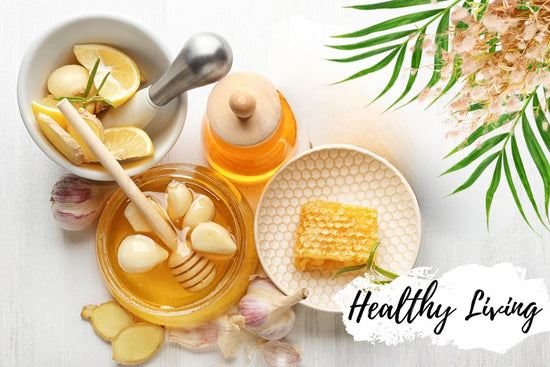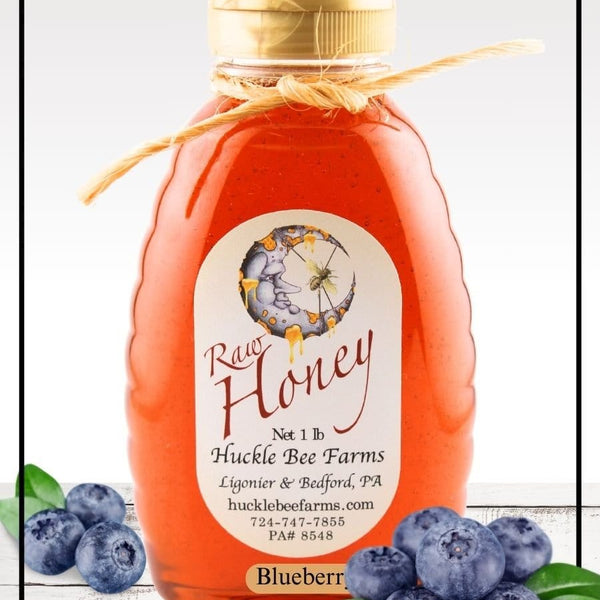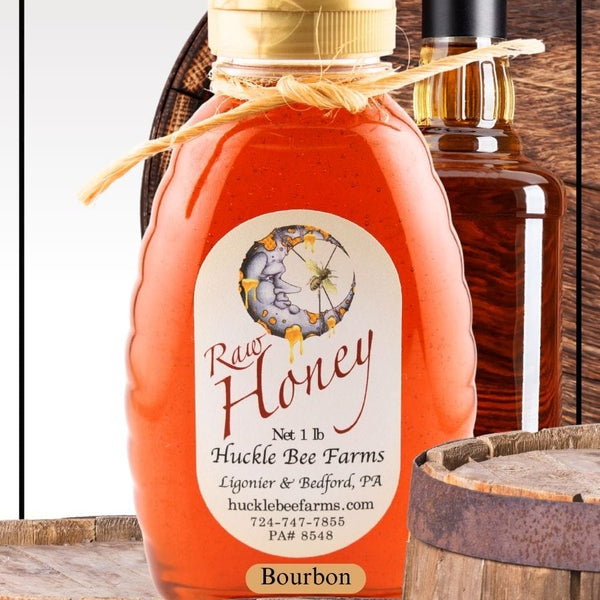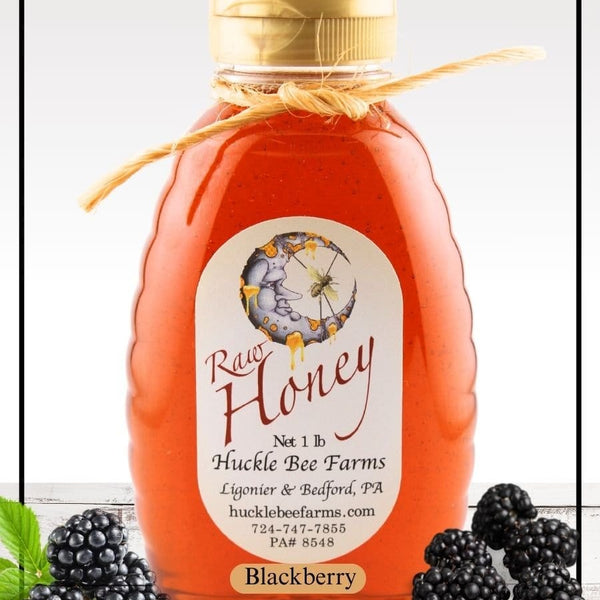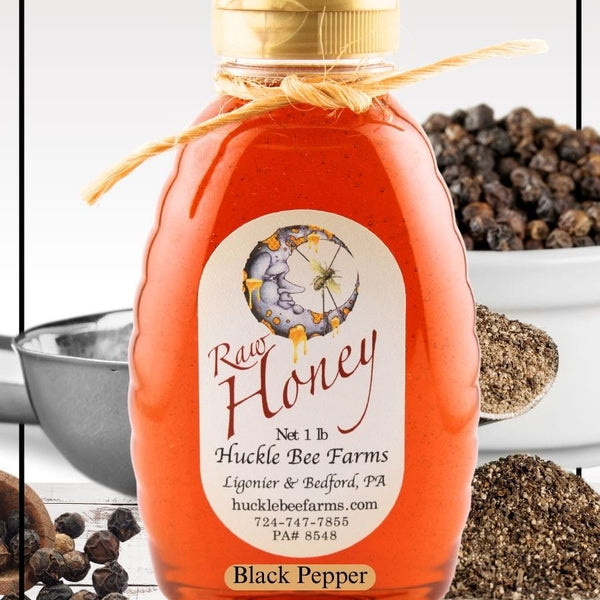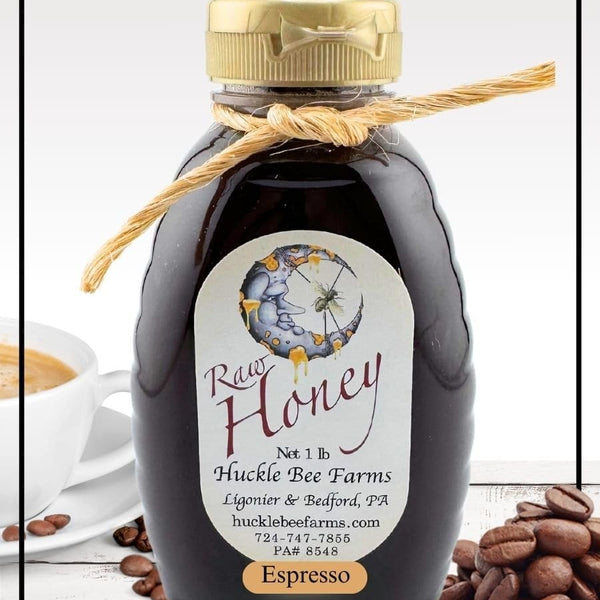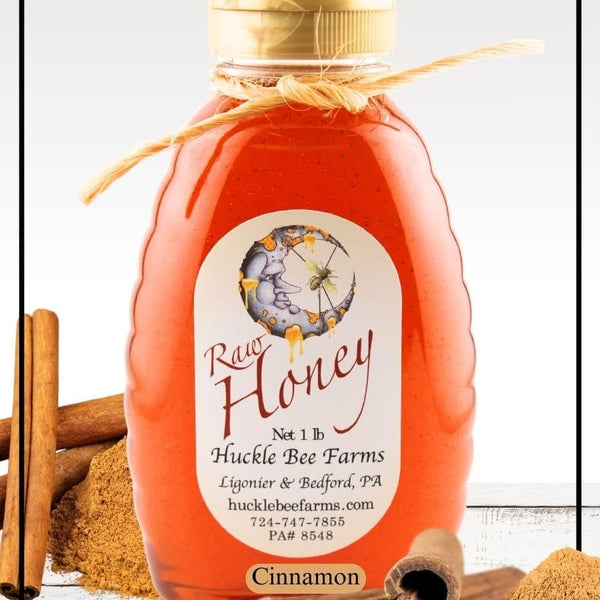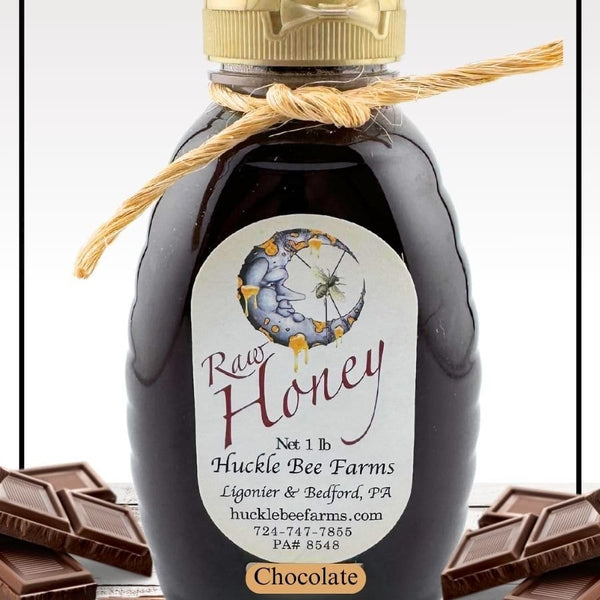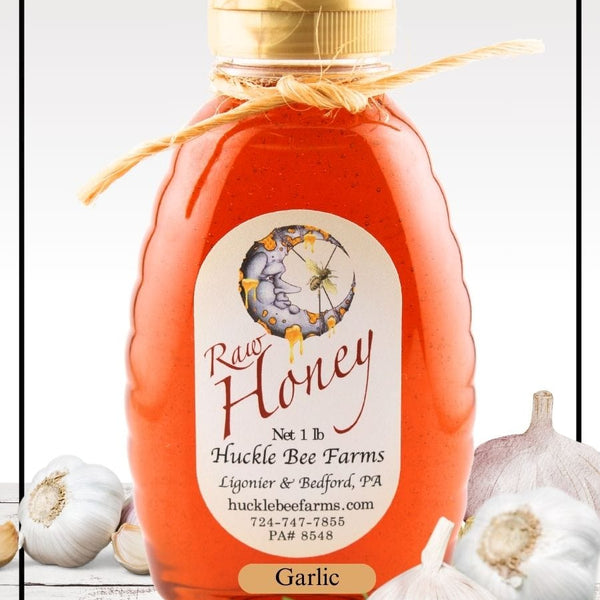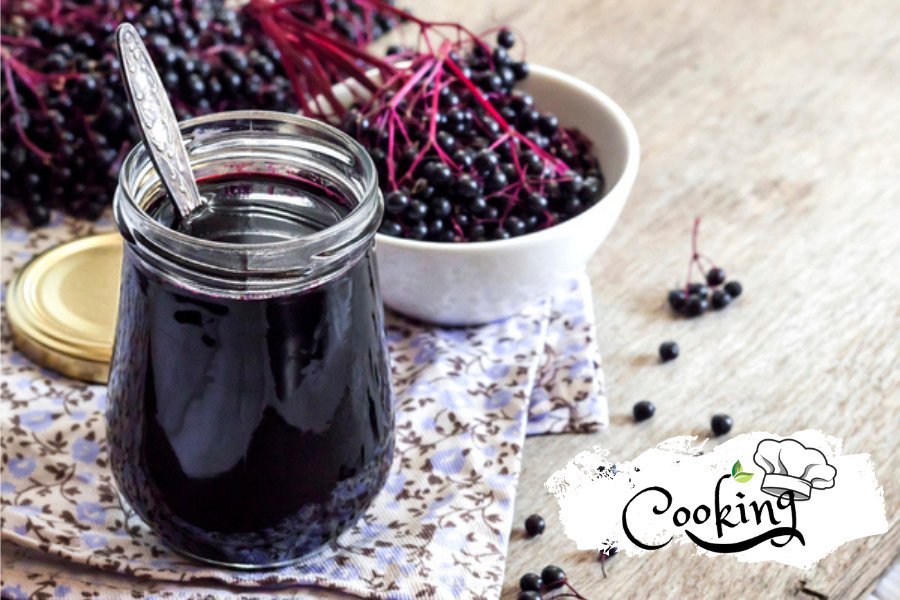
Elderberry Honey Syrup Recipe: Nature's Remedy
Sworn by generations, a tsp a day keeps the doctors away...
🌿 Dive into the world of sweetness and health with our Elderberry Honey Syrup! 🍯 Made with the finest elderberries and pure raw honey, this syrup is a powerhouse of antioxidants and immune-boosting properties. Take your taste buds on an adventure and try it today!
Elderberry syrup uses are variable and diverse, including topping onto waffles and pancakes, mixing into teas, or using solely for these medicinal purposes to boost your immune system.

Fights the Flu
While elderberry may not prevent the flu, it may be an effective treatment option if you get hit with the influenza. Research shows the use of elderberry could shorten the duration of flu by about three to four days by building your immunity, along with lessening symptom severity if taken within the first 24 hours of having the flu. When it comes to recommended dosages, it’s suggested one tablespoon (15 milliliters) of elderberry syrup, taken four times daily for three to five days.
Reduces Cold Duration
Along with being a supportive agent against the flu, elderberry is well-known in its fight against the cold, particularly related to its vitamin A and C content. In fact, a 2016 research article published in Nutrients found a significant reduction of cold duration and severity in air travelers. Travelers using elderberry starting 10 days before travel until four to five days after arriving overseas, experienced, on average, a two-day shorter duration of the cold and also noticed a reduction in cold symptoms.
Manages Diabetes
The berry has been traditionally explored in its treatment of diabetes, with evidence published in the Journal of Nutrition demonstrating the presence of insulin-releasing and insulin-like activity in the proclaimed anti-diabetic plant, Sambucus nigra.
Reduces Inflammation
Elderberry displays numerous anti-inflammatory activities, particularly related to its anthocyanin and vitamins A and C contents. Inflammation has shown to be the root of many chronic diseases, which may label elderberry as a contender against the fight against cancer, diabetes, and heart disease.
Recipe to Make Elderberry Syrup
While elderberry syrup is readily available for purchase, you can also prepare it in the comfort of your own home! Here’s how:
Ingredients:
- 1 cup dried elderberries (or 2 cups fresh elderberries)
- 4 cups water
- 1 inch fresh ginger, sliced (or 1 tablespoon dried ginger)
- 4 whole cloves
- 1 cup Cinnamon Honey
Instructions:
- In a medium saucepan, combine the elderberries, water, ginger, and cloves.
- Bring the mixture to a boil over medium heat.
- Once boiling, reduce the heat to low and let the mixture simmer for about 30-40 minutes, until the liquid has reduced by half.
- Remove the saucepan from heat and let the mixture cool slightly.
- Strain the liquid through a fine mesh sieve or cheesecloth into a clean bowl or jar, pressing down on the berries to extract as much liquid as possible. Discard the solids.
- Let the liquid cool to lukewarm, then stir in the honey until it's completely dissolved.
- Transfer the elderberry syrup to a clean, airtight container, such as a glass jar or bottle.
- Store the syrup in the refrigerator for up to two weeks.
- To use, take 1-2 tablespoons daily as a preventative measure during cold and flu season. If you feel a cold coming on, you can take the same dosage every 2-3 hours until symptoms subside. Always consult with a healthcare professional before starting any new supplement regimen, especially if you have underlying health conditions or are taking medications.
You just made homemade elderberry syrup! Store in the fridge and take daily for its immune boosting properties.

Conclusion:
Elderberry honey syrup is a wonderful natural remedy that offers a multitude of benefits. By combining the healing properties of elderberries with the sweetness of honey, this syrup provides a delicious and nutritious way to support your health. Whether you're a health-conscious individual, a culinary enthusiast, or a honey lover, making your own elderberry honey syrup is a great way to embrace the power of nature. So why not give it a try and experience the amazing benefits for yourself? Cheers to nature's remedy!

What is elderberry honey syrup good for?
Elderberry honey syrup is a versatile and beneficial natural remedy. It is made by combining elderberry extract and honey, creating a delicious and potent syrup.
Elderberry honey syrup is known for its immune-boosting properties. Elderberries contain antioxidants that can help strengthen the immune system and protect against harmful pathogens. Honey, on the other hand, has antimicrobial properties that can support a healthy immune response. Together, they create a powerful combination to support overall wellness.
This syrup is often used as a natural remedy for cold and flu symptoms. It can help soothe a sore throat, relieve congestion, and reduce coughing. The elderberry extract in the syrup is known to have antiviral properties, which may help shorten the duration of illness.
In addition to its immune-boosting effects, elderberry honey syrup also offers potential cardiovascular benefits. Elderberries are rich in flavonoids, which are compounds that are beneficial for heart health. Research suggests that these flavonoids may help reduce the risk of heart disease by improving blood flow and reducing inflammation.
Overall, elderberry honey syrup is a delicious and convenient way to support your health. Whether you're looking to boost your immune system, soothe cold symptoms, or promote heart health, this syrup can be a valuable addition to your wellness routine.

Is it OK to take elderberry syrup everyday?
Elderberry syrup is a popular natural remedy that is often praised for its potential health benefits. But is it safe to take elderberry syrup every day?
Evidence suggests that taking elderberry syrup daily is generally safe for most people. Elderberries are rich in antioxidants and have been found to have immune-boosting properties. They contain compounds called anthocyanins, which have antimicrobial and anti-inflammatory effects. Regular consumption of elderberry syrup may help support a healthy immune system.
However, it's important to note that while elderberry syrup is generally considered safe, it can interact with certain medications or cause allergic reactions in some individuals. It's always a good idea to consult with a healthcare professional before adding any new supplement to your daily routine, especially if you have any underlying health conditions or take medications regularly.
In addition, moderation is key when it comes to elderberry syrup. While it can be beneficial in small doses, excessive consumption may lead to digestive issues such as diarrhea or stomach upset. It's best to follow the recommended dosage instructions provided by the manufacturer or consult with a healthcare professional for personalized guidance.
Overall, incorporating elderberry syrup into your daily routine can be a tasty way to support your immune system and overall well-being. Just remember to exercise caution, consult with a healthcare professional, and enjoy it in moderation for the best results.
Huckle Bee Farms
www.hucklebeefarms.com





